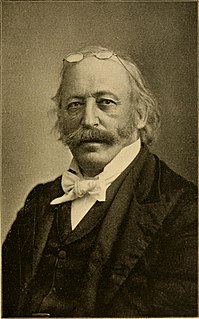A Quote by John Locke
The great question which, in all ages, has disturbed mankind, and brought on them the greatest part of their mischiefs ... has been, not whether be power in the world, nor whence it came, but who should have it.
Related Quotes
Whence came I, whither go I? Science cannot tell us a word about why music delights us, of why and how an old song can move us to tears. Science is reticent too when it is a question of the great Unity – the One of Parmenides – of which we all somehow form part, to which we belong. The most popular name for it in our time is God – with a capital ‘G’. Whence come I and whither go I? That is the great unfathomable question, the same for every one of us. Science has no answer to it.
The question should not be whether or not police are allowed to confront suspects; it should be about how we train them. The question should not be whether we have police; it should be how we use them. The question should not be whether judges should have the ability to protect New Yorkers from violent offenders; it should be how we let them.
The great ideals of the past failed not by being outlived (which must mean over-lived), but by not being lived enough. Mankind has not passed through the Middle Ages. Rather mankind has retreated from the Middle Ages in reaction and rout. The Christian ideal has not been tried and found wanting. It has been found difficult and left untried.
We cannot escape our destiny, nor should we try to do so. The leadership of the free world was thrust upon us two centuries ago in that little hall of Philadelphia. In the days following World War II, when the economic strength and power of America was all that stood between the world and the return to the dark ages, Pope Pius XII said, 'The American people have a great genius for splendid and unselfish actions. Into the hands of America God has placed the destinies of an afflicted mankind.' We are indeed, and we are today, the last best hope of man on earth.
The man who is worthy of being a leader of men will never complain about the stupidity of his helpers, the ingratitude of mankind nor the inappreciation of the public. These are all a part of the great game of life. To meet them and overcome them and not to go down before them in disgust, discouragement or defeat-that is the final proof of power
The world is not as it was when it came from its Maker's hands. It has been modified by many great revolutions, brought about by an inner mechanism of which we very imperfectly comprehend the movements; but of which we gain a glimpse by studying their effects: and their many causes still acting on the surface of our globe with undiminished power, which are changing, and will continue to change it, as long as it shall last.
To bring the matter to one point, Is the power who is jealous of our prosperity, a proper power to govern us? Whoever says, No, to this question, is an independent, for independency means no more than this, whether we shall make our own law, or, whether the king, the greatest enemy which this continent hath, or can have, shall tell us there shall be no laws but such as I like.







































